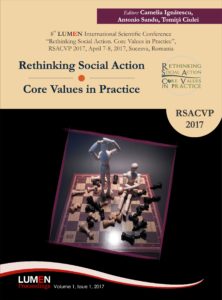Some Considerations on Peter Singer’s Practical Ethics
Some Considerations on Peter Singer’s Practical Ethics
Author(s): Mihai Androne
Subject(s): Philosophy
Published by: Editura Lumen, Asociatia Lumen
Keywords: Peter Singer; postmodernity; practical ethics; atheism; Jean-Paul Sartre.
Summary/Abstract: Peter Singer’s applied or practical ethics constitutes a typical product of the pluralist, relativistic, utilitarian and secular spirit of the postmodern era. Being an influential public figure, at the same time famous and controversial to the highest degree, his ideas have more than once been considered as dangerous. A passionate advocate of animal rights, Peter Singer is not a supporter of man’s right to live. His philosophical attitude towards humanity and personality, his total separation from the Judeo-Christian tradition, protector of the sanctity of life, made him profess, in his book Practical Ethics, that the unborn children and the newborns are not rational beings and therefore do not value more (in fact, they value less) than certain animals. Such an anthropological conception evincing the psychological aspects of human existence is meant to “justify” abortion, infanticide, removal of haemophiliac children. This doctrinaire stance of the Australian moral philosopher aims at showing us the unhappy position of contemporary man who is deprived of certainties, of absolute moral benchmarks. Being an admirer of the French philosopher Jean-Paul Sartre, the atheist philosopher and ethicist Peter Singer considers that ethics is a natural phenomenon and man has no essential nature, being free to choose what he wants to be. By this type of existentialist ideas Peter Singer only confirms the truth of Jean-Paul Sartre’s statement in Existentialism is a Humanism: if God does not exist, then everything is permissible.
Book: Rethinking Social Action. Core Values in Practice
- Page Range: 34-43
- Page Count: 10
- Publication Year: 2017
- Language: English
- Content File-PDF

